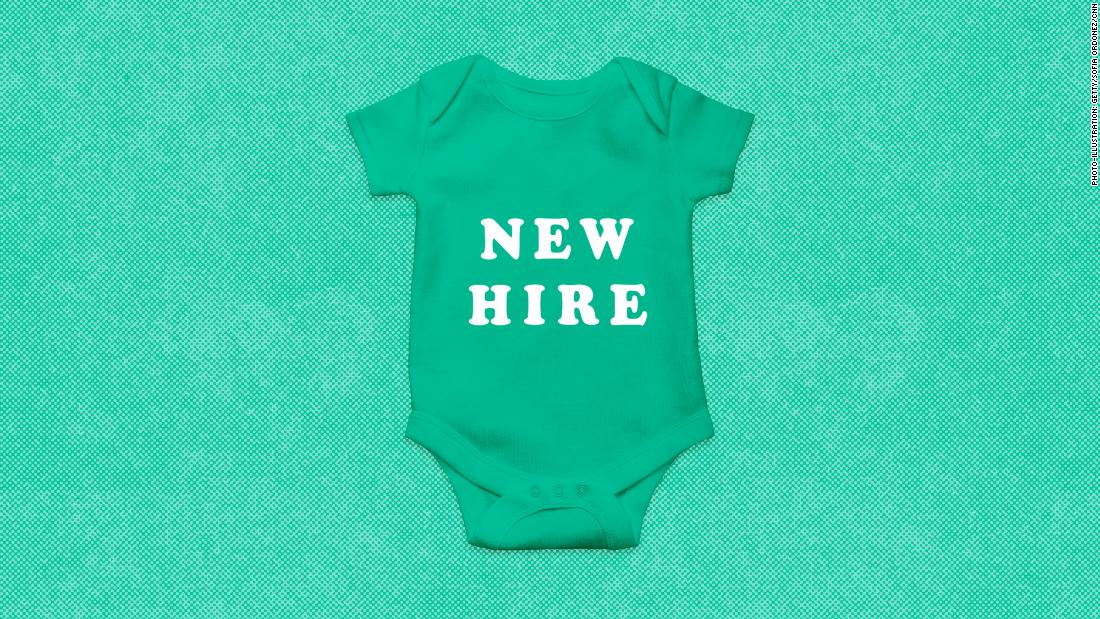
There are no rules for how it should happen, and yet there are lots of unofficial rules about how it should happen, with plenty of contradictory advice from family, friends and coworkers.
Depending on where you work, you may also need to discuss how to navigate potential pregnancy risks, like on-the-job health hazards, or coping with pregnancy-related discrimination.
Weighing all these things — the potential for awkwardness, discrimination, medical uncertainty and more — makes the conversation incredibly uncomfortable for women in all industries.
Finding the right time
Research suggests that disclosing pregnancy earlier may actually benefit how people view a woman in the workplace, says Kristen Jones, assistant professor of management at the University of Memphis. When a female employee hides her pregnancy and people begin to suspect as much, they may view her as dishonest and aloof. But when someone shares earlier on, coworkers see her in a friendlier light.
"It helps with trust, it helps with transparency, it makes you seem more honest," Jones says. "[Bosses and coworkers] are like 'Oh, you're trusting me. You didn't have to tell me this, it's not like your baby bump is growing and you're forced to tell me.'"
But almost 80% of miscarriages happen in the first trimester, so many women choose to stay silent until at least 12 weeks into the pregnancy.
Katy, a marketer who didn't want to share her last name, says she suffered a miscarriage within the first eight weeks of pregnancy. She hadn't yet shared the news at work, so when she called her manager to ask for time off to recover, he wasn't as sympathetic as she had hoped.
"I was literally bleeding and in crazy pain and crying in the bathroom and he was like, 'You can work from home, but we still need you,'" she says. "I didn't tell him I was having a miscarriage, so maybe if I was more open and honest, maybe it would have been different."
Deciding when to disclose also depends on individual comfort and the personal relationship between a manager and an employee, says Meredith Bodgas, editor-in-chief of Working Mother Magazine.
"If you wouldn't want to share that you miscarried, if you are unfortunate to experience that, then you probably should wait until you're 13, 14 weeks along," she says. "But if you would be comfortable sharing that with your manager, then you can tell as early as you want."
Having the conversation
Too many women stress about finding the "perfect opening line," Bodgas says. When she first told her manager about her pregnancy, she led with the big news: "I'm 10 weeks pregnant."
"My strategy is ripping off the Band-Aid," she says. "Just say what you need them to know. You don't need to do 'Well, I really appreciate my job here ...' — If you start with this long wind-up, it makes them nervous, it makes them wonder where you're going."
While some women might be tempted to have the conversation over phone or email, Bodgas recommends an in-person chat. This gives both people the time to react, with less room for miscommunication.
"If you have a manager who is not as understanding when her current reports are going to be out, doing it in person makes it a lot harder to misread their body language, or misjudge their reaction," she says. "Also the flip side of that is, if you are right across the table from them, they are less likely to do something you are not going to like. They're going to make sure their reaction is appropriate and congratulatory. They're less likely to do something that would make a pregnant woman feel badly."
Setting expectations
That first conversation can also be an opportunity to talk about the plans for maternity leave.
Together with her boss, Ashley Womble, a nonprofit outreach and communications director, created a plan of action for while she was out. Because her work team is smaller and she was relatively new to the role, she wanted to communicate to her manager that she could also be made available for extreme issues if necessary.
"I also know it's a hardship for an employer," she says. "I work at a nonprofit and it's very much all-hands-on-deck. I wear a lot of hats. I knew it would be difficult for my colleagues when I was away."
Jay Starkman, CEO of Engage PEO, a human resources outsourcing solution for small- and mid-sized companies, recommends managers be proactive in asking to meet with the pregnant employee both before and after leave. Along the way, they can help her manage expectations for when (and how) she returns to work.
"Returning is an emotional thing," he says. "A good employer needs to understand that the employee is going through that."
Womble says these proactive conversations can open a crucial path of communication, for both the employee and the employer.
"I think it's something that isn't talked about enough," Womble says. "Obviously the vast majority of mothers in our country work, so they do need to take leave and we talk a lot about the need for leave and certainly that exists — but it's still pretty awkward."
No comments:
Post a Comment